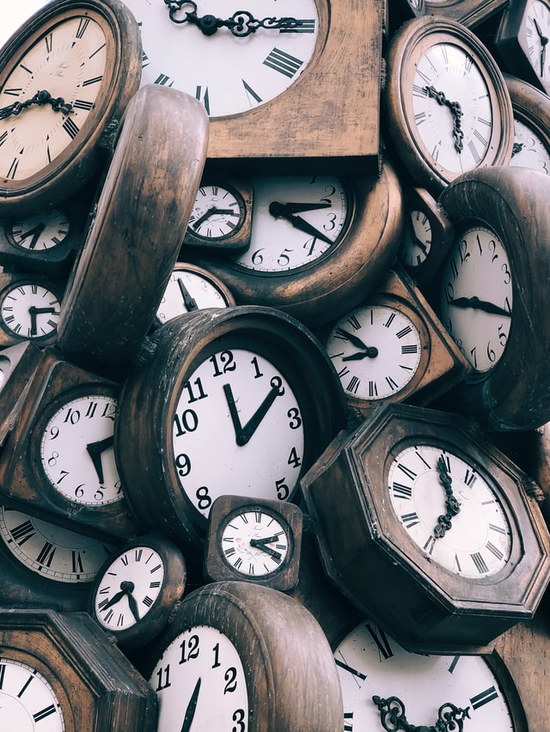Time and the Sacrament of the present moment
June 15, 2021 Blog
It has come as something of a shock to discover that we will soon be half way through the year! The longest day of the year is almost upon us! Just where has the time gone?
I don't know about you, but over the pandemic, my sense of time has come to feel more and more like that famous Salvador Dali painting, "The Persistence of Memory", Museum of Modern Art, in which the drooping clocks adorn a dreamlike landscape. The painting seems to mock the very passage of time. Then there is the story of the man who went into a clock-maker's shop and asked the shopkeeper why all the clocks hanging on the wall showed a different time. "And what" said the watchmaker, "would be the point of having them all tell the same time". Indeed.
Something strange has happened to our sense of time during this pandemic. Without our usual social events, appointments, holidays, etc., we've had to rethink how we measure time and the difference this is making to how we live at present. I have to say that I have always loved following the liturgical year with its different seasons like Advent, Christmas, Lent, Easter, Pentecost, and the long weeks of Ordinary time.
I even love their liturgical colours.
The ancient Greeks were so interested in the concept of time that they had two words for it: chronos and kairos. Chronos time is mostly chronological, quantitative, how we measure the passing days. Indeed, we get the word "chronology" from the Greek word, chronos. However, the trouble about being able to measure time chronologically or quantitatively, is that it enables us to learn quickly how to worry about whether or not we have enough of it. Just think of our cultural lexicon in relation to time: "Time waits for no one", "Don't waste time", "Time is money", etc. We are afraid of losing it, of running out of it. Days marked only by chronos time bind us in ways that can feel restrictive, demanding and even worrying.

But how do we account for the qualitative time of our lives, kairos time? To grasp kairos time we have first to release some of our anxiety around chronos time. Of course, we all have our work and family commitments that require adherence to schedules and plans. However, I think we can still learn to keep time in a way that not only makes sure we accomplish all we need to but that also keeps us open to being steered by life in ways we may not have anticipated.
And a kairos moment can open up anywhere and for any length of chronological time. It can involve simple exercises like meditation, reading, walking, listening to music, even just staring out the window - all these help keep one attentive, open and in tune with the "sacrament of the present moment". I can't help feeling that if we were more used to living in kairos time we would be more likely to consider that time is not something to be afraid of. There's something psychologically freeing about "taking your time, " about standing still momentarily, about taking what the novelist Virginia Woolf called "A moment's Liberty" to think and reflect. Such an exercise invites us to ask: "What is time for?" And, maybe, "what are we doing with it"?

